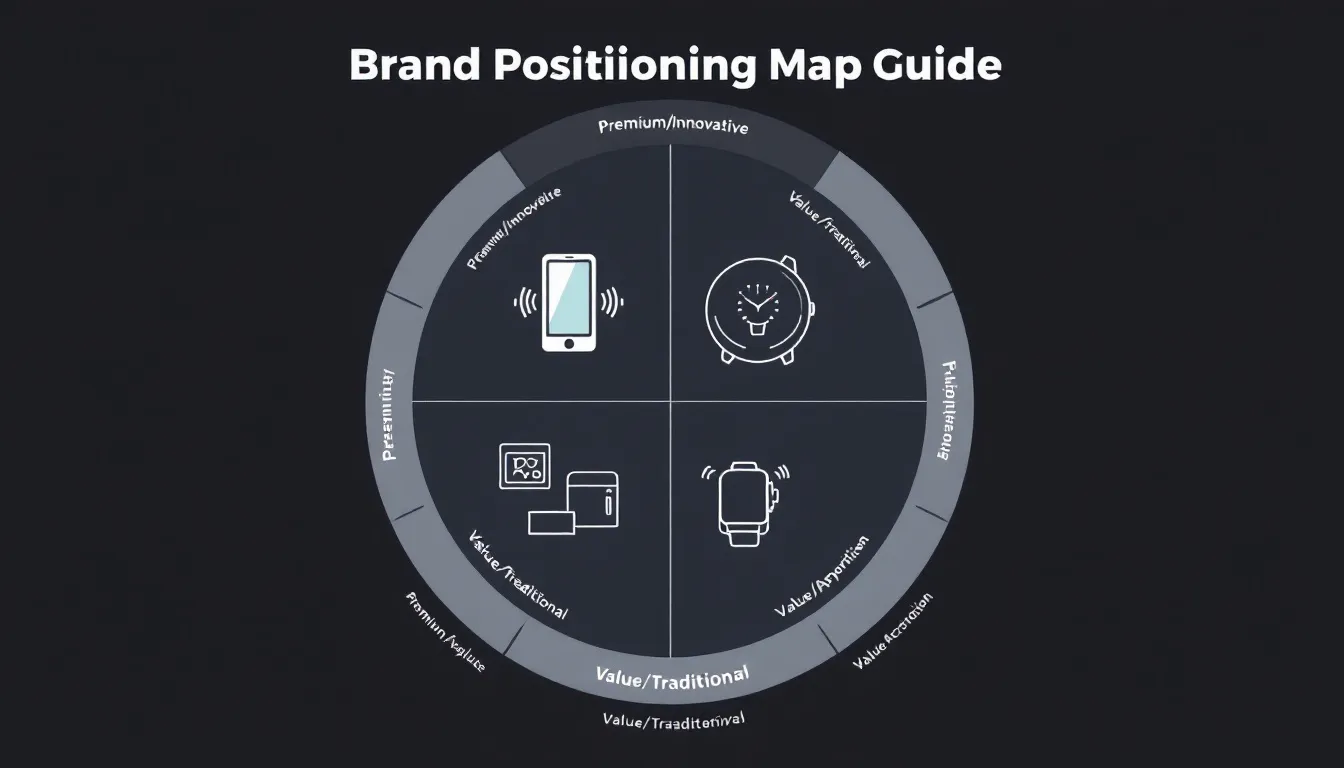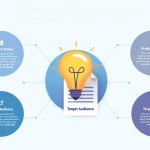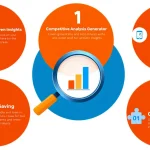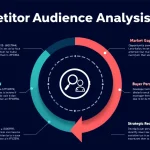Is this tool helpful?
How to Use the Brand Positioning Map Generator Effectively
Follow these steps to get the most accurate and insightful brand positioning analysis using the generator:
- Enter your brand name. Examples: “OceanView Apparel” or “BrightPath Consulting”
- List your main competitors. Include 3-5 competitors for meaningful comparison. Examples:
- “FreshWear Clothing”
- “NextGen Tech Services”
- “Harmony Organics”
- Describe your unique value proposition. Summarize what sets your brand apart. For example:
- “Eco-friendly fabrics with modern designs”
- “Tailored IT solutions for small businesses”
- Specify your target market. Clearly define your primary audience, e.g., “Health-conscious urban parents aged 30-45” or “Mid-career professionals in financial services”
- Select your price positioning strategy. Choose from Premium, Mid-range, or Value based on your pricing approach
- Input key attributes that influence your brand’s position. Examples include “Durability”, “Customer Support”, “Sustainability”
Input Field Guidelines
Brand Name
Use your full brand name exactly as customers recognize it in the market. Examples:
- “Summit Outdoors” – for an adventure gear company
- “BrightWave Communications” – for a telecom service provider
Competitor Analysis
List each competitor on a separate line, including direct and indirect competitors. Examples:
- Competitor X – Industry leader in e-commerce
- Competitor Y – Regional service provider
- Competitor Z – Emerging startup focusing on innovation
What Is the Brand Positioning Map Generator?
The Brand Positioning Map Generator is a tool designed to help you visually map your brand’s place in the market relative to competitors. It allows you to analyze your unique value proposition, pricing, target market, and key brand attributes to identify your competitive strengths and market gaps.
By creating a clear visual of your brand’s positioning, you gain insights that support strategic planning, marketing, and product development decisions. Using this tool regularly keeps your brand aligned with market trends and helps you respond proactively to competitor moves.
Key Benefits of Using This Tool
- Visualize your brand’s strengths and weaknesses compared to competitors
- Identify new market opportunities and unmet customer needs
- Clarify your unique value proposition in the competitive landscape
- Improve pricing and product positioning strategies
- Enhance communication of positioning to stakeholders and teams
Practical Applications of the Brand Positioning Map Generator
Use this tool to support various business activities:
Market Analysis
Map competitors across dimensions like price, quality, innovation, or customer service to understand market dynamics. For example, a fitness equipment brand might plot:
- Price vs. Durability
- Technology Integration vs. Traditional Design
Competitive Differentiation
Use attribute mapping to pinpoint your brand’s unique position. For a health tech startup, attributes might include:
- Data Privacy Level: High
- Subscription Cost: Affordable
- Customer Support: 24/7 Availability
Strategic Positioning
Evaluate where to focus marketing efforts, product innovation, or pricing adjustments. The map highlights gaps where competitors underperform and where you can stand out.
Maximizing Your Brand Positioning Map
Implementation Tips
- Update your positioning map regularly to reflect market changes
- Incorporate customer feedback and market research results
- Use insights from the map to align sales, marketing, and product teams
- Tailor positioning maps for different customer segments or regions
Long-Term Advantages
- Maintain a strong, competitive market stance
- Make informed decisions that boost growth
- Spot emerging trends before competitors do
- Create marketing messages based on clear value distinctions
Important Disclaimer
The calculations, results, and content provided by our tools are not guaranteed to be accurate, complete, or reliable. Users are responsible for verifying and interpreting the results. Our content and tools may contain errors, biases, or inconsistencies. Do not enter personal data, sensitive information, or personally identifiable information in our web forms or tools. Such data entry violates our terms of service and may result in unauthorized disclosure to third parties. We reserve the right to save inputs and outputs from our tools for the purposes of error debugging, bias identification, and performance improvement. External companies providing AI models used in our tools may also save and process data in accordance with their own policies. By using our tools, you consent to this data collection and processing. We reserve the right to limit the usage of our tools based on current usability factors.







